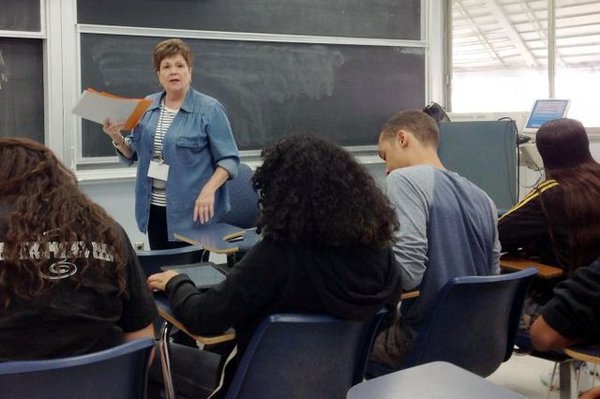
Latest aid figures show support to education falls again

Latest aid figures for education estimated by the Global Education Monitoring (GEM) Report, UNESCO, show that levels went down by almost US$600 million, or 4%, between 2013 and 2014. The share of total aid being allocated to education also fell from 9.5% to 8.2%, indicating that the sector is falling further down the list of priorities for donors.
Aid to basic education, providing for pre-primary and primary education as well as basic life skills, has decreased by 5% since 2013, an even greater fall than for education as a whole. And this while out of school numbers for primary education are on the rise, totaling 59 million by latest counts according to the UNESCO Institute for Statistics.
Aid to education needs to increase
The GEM Report has previously calculated that aid to education needs to increase by at least six times to fill the annual finance gap of $39 billion in order to provide the global target of 12 years of quality education for all by 2030. Yet the latest analysis shows that, rather than rising, levels of aid to the sector are 8% lower than they were in 2010. To fill the remaining gap and reach the target, these aid levels now need to increase seven-fold.
Aaron Benavot, Director of the GEM Report, UNESCO: "It is disheartening to see that international aid to education is going in totally the wrong direction. This will make education progress extremely difficult, if not impossible, for many countries still reliant on financial support from donors. And early indications of aid flows for 2015 do not leave much room for optimism."
Aid to education is still not going where it is needed most.
Smaller shares of aid to basic education are being allocated to the poorest countries, where the need is greatest, dropping a sixth since 2002-3 levels.
Sub-Saharan Africa behind the rest
The share received by sub-Saharan Africa of total aid to basic education has fallen from 49% in 2002/03 to 28% in 2014, even though the region accounts for over half of all out-of-school children.
Between 2013 and 2014, four donors, France, Japan, Netherlands, and Spain, reduced aid to basic education by 40% or more. The United Kingdom reduced aid to basic education by 21%, or almost twice its rate of reduction of total aid to education, and is no longer the largest bilateral donor. Its place has been taken by the United States, which increased aid to basic education by US$164 million or 23%.
Neither is aid per child delivered according to need. For example, the average child in Mongolia receives US$45 even though the primary completion rate was 97% in 2010. By contrast, Chad, where the primary completion rate was 28% in 2010, received US$3 per primary school age child in 2014.
Benavot continues "Governments around the world have just signed up to an enormously ambitious and promising vision for education and lifelong learning over the next fifteen years, an agenda they know is crucial if even greater ambitions for sustainable development are to be realized by 2030. Do they think such an agenda can be achieved if there aren't sufficient funds to carry out the work?"
Source: UNESCO
Prepared for publication by
Timothy Bancroft-Hinchey
Pravda.Ru
Twitter: @TimothyBHinchey
*Timothy Bancroft-Hinchey has worked as a correspondent, journalist, deputy editor, editor, chief editor, director, project manager, executive director, partner and owner of printed and online daily, weekly, monthly and yearly publications, TV stations and media groups printed, aired and distributed in Angola, Brazil, Cape Verde, East Timor, Guinea-Bissau, Portugal, Mozambique and São Tomé and Principe Isles; the Russian Foreign Ministry publication Dialog and the Cuban Foreign Ministry Official Publications. He has spent the last two decades in humanitarian projects, connecting communities, working to document and catalog disappearing languages, cultures, traditions, working to network with the LGBT communities helping to set up shelters for abused or frightened victims and as Media Partner with UN Women, working to foster the UN Women project to fight against gender violence and to strive for an end to sexism, racism and homophobia. A Vegan, he is also a Media Partner of Humane Society International, fighting for animal rights. He is Director and Chief Editor of the Portuguese version of Pravda.Ru.